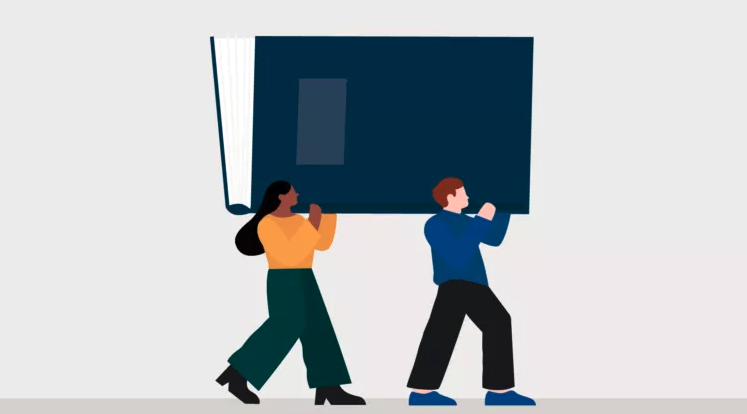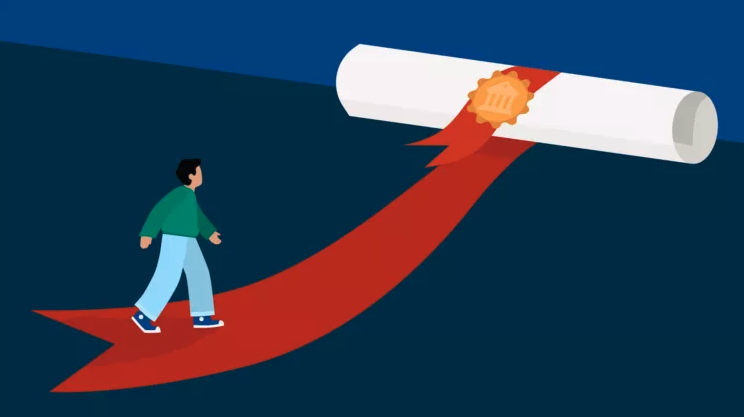Landing a paralegal interview in the UK is an exciting and impressive feat. But now, it’s time to prepare for that interview by studying the paralegal interview questions you’ll likely get asked. Below, we’ve outlined common legal interview questions and some guidance and considerations for your answers. We have divided these into five sections:
- General paralegal interview questions
- Questions about your experience and background
- In-depth legal questions
- Questions about skills and software
- Scenario-based questions
Continue reading for our best practices when fielding paralegal interview questions.
What are 3 skills that a paralegal should have?
A sought-after paralegal has an ability to multitask, a strong attention to detail, and a willingness to learn.

Why is it important to prepare for paralegal interviews?
It’s normal to feel nervous about paralegal interviews. It’s a shared experience among all candidates. So, acknowledge your nerves and understand that careful preparation is your best chance at impressing.
Work on building up a mindset to come across with genuine professional confidence. This way, when asked paralegal interview questions, you’ll come across as a highly capable professional, even though you might be nervously shaking in your shoes. One way to do this is to treat the interview as if you’re deciding if you like them. Not only is this true (you should be thinking about this in any interview), but thinking this way can also help ease nerves and support you in harnessing your inner confidence.
Not to mention, paralegals are in demand. According to the Institute of Paralegals, there are around 250,000 paralegals in the UK. Of that number, around 60,000 operate within law firms. The remainder are dispersed across companies, charities, non-profits, HNS, and central and local government branches. Paralegals also tend to become freelancers and fit work around their lives.
Now, let’s get on to the important part–your preparation. This is undoubtedly the most time-consuming and, potentially, least exciting part of the interview process. Though, as a legal professional, we don’t have to tell you how important it is to prepare. Set aside time in your diary to learn everything and anything you can about the firm you’re interviewing at, the people who work there, and the clients they serve. Your answers to the paralegal interview questions below should be tailored to suit the needs of the firm where you aspire to work.
General Paralegal Interview Questions
Let’s start with some fundamental general paralegal interview questions you will likely be asked.
Why do you want to be a paralegal?
While this is a reasonably straightforward interview question, your answer should be thoughtful and unique to your experiences. When it comes to paralegal interview questions like these (ones which aren’t directly related to your hard skills), try turning your answer into a story. Psychologists found we retain information better when that information is delivered via a story with a beginning, middle, and end. Share a story about why you pursued paralegal studies or a paralegal career. This will help you stand out from other candidates and hopefully make your interview memorable. As a bonus, this strategy supports building rapport with the interviewer(s).
Why did you apply to this firm?
This question is just as important as the previous question. This is your opportunity to impress your interviewer and separate yourself from the other candidates. Again, this is where you can add personal stories and experiences and share additional information that shows you are human. Talk about the clients the firm attracts and how you would enjoy working for them. Perhaps this firm is family-owned and has values which align with yours. If you see yourself represented in senior roles at the firm, mention this. The art of selling yourself is easiest when speaking from strong passions and values.

You may like these posts
Questions About Experience and Background
Your prospective employer will be interested in your paralegal experience and the types of work you’ve previously carried out. This allows you to showcase who you are and what you’ve achieved.
What has your paralegal experience been so far?
Here, you can allow your potential future employer to learn more about who you are as an individual. In addition, this question will enable you to speak about your relevant professional experience and how it applies to the role you seek to fulfil. To strike the perfect balance of discussing hard and soft skills, be sure to speak positively about any past organisations and fellow employees and any unique learning experiences you had. It’s also imperative to talk in detail about the work you completed regularly at past firms. Keep it short, simple, and positive. Now is not the time to critique past employers. It is, however, the time to speak about how you’ve optimised or developed processes at past jobs.
Are you planning to eventually become a lawyer?
This question might seem unusual, especially to those dedicated to paralegal work. However, it’s essential to understand that many paralegals do pursue other careers in their lifetime. There are a myriad of career options for those with formal paralegal training. Wherever you consider becoming a lawyer, it’s important to signal to your employer that you’ll be dedicated to your career (and, potentially, their firm) in the foreseeable future. It’s a good idea to talk about your motivation to work as a paralegal and how their firm can help you build on the experience you’ve already gained.

In-Depth Legal Questions
Prospective employers will want to know if your skills match their needs. They will probe your knowledge about the area of law for the advertised position.
What areas of law are you interested in the most?
This is generally considered a common paralegal interview question. You must be honest, but it won’t serve you well to talk about your passion for criminal law in an interview for a role at an immigration firm. During your interview preparation, tailor your answers to the firm interviewing you. Make sure you study the job advert and description. Review their firm structure (if they have roles and job titles on their website) and brainstorm any pain points you can identify. Can you solve any of them? For example, if they employ many lawyers but only one paralegal, it’s a safe bet you’ll be assisting with a lot of legal research. On the other hand, if the job description is about bridging the gap between clients and lawyers, be sure to talk about your client communication skills in the interview.
What are your legal research skills?
If you are asked this paralegal interview question, it’s crucial to be as specific and detailed as possible. Practice walking someone through the process you take when researching a case. Mention any tools, databases, or software you use for legal research. If you’re a new graduate or have limited experience, try using some free legal research tools before your interview. Think about a time when your research uncovered information in time to help the firm win a case or win over a client—practice sharing this story in such a way that communicates your savvy research skills.

Questions about Technical Skills and Software
In today’s digital age, paralegals must be proficient in various software tools and technologies to perform their jobs efficiently. These tools can help with document management, case management, and legal research. Being tech-savvy not only streamlines workflows but also enhances the accuracy and accessibility of legal information.
Do you have experience using firm management software?
The likelihood of this question coming up in an interview depends on the firm. While preparing for the interview, take a look at their website. If they use chatbots or have an impressive web presence, these are signs they leverage technology and could ask about your ability to do the same. Interestingly, there are job postings which list experience using legal management software as either an asset or a requirement. Regardless, it doesn’t hurt to have a thoughtful answer in your back pocket. If you’ve never used firm management software before, consider signing up for a free trial for firm management software and practice using it before your interview.
Some standard software tools used by paralegals include:
- Document management software: Clio’s legal document management software helps organise and retrieve legal documents efficiently.
- Case management software: Platforms like Clio streamline case tracking, client communication, and task management.
- Legal research software: Westlaw or LexisNexis are indispensable for conducting thorough legal research and accessing a vast array of legal resources.
- Time tracking and billing software: Tools like Clio’s legal time recording help you accurately record billable hours and manage invoicing.
- Microsoft Office: Proficiency in Word, Excel, and Outlook is essential for drafting documents, managing data, and communicating effectively.

Scenario-Based Questions
It is not unusual for a prospective employer to present you with scenarios and ask how you would respond to them.
How do you maintain your attention to detail when completing repetitive tasks?
You must prepare for this vital paralegal interview question because it’s likely to come up. No one wants to admit that they sometimes have problems staying focused in a job interview, even though we all do. We’re only human. That said, it’s wise to start by stating you naturally have a keen attention to detail, and a workload of repetitive tasks doesn’t inhibit this. You can also mention that you’ve heard from legal mentors that modifying the order of tasks, setting specific deadlines, and reviewing your work after switching tasks can help maintain sharp attention to detail.
How do you deal with frustrated or demanding clients?
Not all paralegal roles are client-facing, though many are. When answering paralegal interview questions about communicating with clients, be thoughtful and empathetic in your responses. It’s important to relay the compassion you have for clients. After all, most are likely experiencing strong emotions when seeking legal help.
After you’ve presented an answer about your empathy for clients while emphasising your strong communication skills, you can follow up and ask the interviewer about their best practices. Consider asking if the firm has any tools to support staff with client communication. These might include client portals or client intake software. You’ll be able to gauge how open your interviewer is to these questions or conversations.
Questions to Ask the Interviewer
You need to interview your prospective employer as well. For example, if you like and are proficient in working with technology, you might be a better fit to work at a firm that is not reliant on its filing cabinet (as opposed to a paperless law firm) or one tied to an on-premise server.
Every business is different and has its own priorities. You must ensure that your ambitions will not be blunted and your progression stunted if you join them. The questions you ask should cover the firm itself, the other paralegals already at the firm, detailed questions about the position for which you’ve applied, what they see as the ideal candidate and, importantly, who you’ll be working for.
How to prepare for paralegal interview questions
Beyond studying the above questions and preparing your answers, other ways to set yourself up for interview success include:
- Asking others for feedback on your responses.
- Practising an interview with a friend.
- Looking up general interview tips.
- The obvious one: Go through many different interviews.
Ultimately, you can practice in the mirror until you’re blue in the face, but truly, the best way to confidently answer paralegal interview questions and improve your comfortability in interview settings is to be interviewed. You will fumble, stutter, shake, and sweat, because we all do. Remember though, the interviewer is already interested in you. They wouldn’t have brought you in otherwise. So, radiate confidence and curiosity as best as you can, set time aside to prepare, and go in understanding this is a two-way street. You’re interviewing them to be your future employer. They should be trying to impress you too. Keep in mind, that signing up to work at an organisation with a poor working environment paves the way for burnout.
Final thoughts on paralegal interview questions
A paralegal interview allows you to impress a potential future employer with your skills, knowledge and professionalism. Approach paralegal interview questions with the same focus and determination you would when preparing for court or working with a client, and you’ll surely be successful.
What questions to ask in a paralegal interview?
Common questions for paralegal interviews concern why the interviewee wants to be a paralegal, why they applied to that firm and their paralegal experience. Other common questions relate to future plans, legal areas of interest, and ability to deal with clients.
How to answer 'why do you want to be a paralegal'?
When asked in a paralegal interview why you want to be a paralegal, the answer should be thoughtful and unique to your experiences. Turn your response into a personal story, with a clear beginning, middle, and end, to make yourself memorable.
We published this blog post in September 2024. Last updated: .
Categorized in: Business
Your Free Guide to Starting Your Own Law Firm
With information on everything you need to consider when setting up a law firm, it will give you the tools you need to get your new law firm started.
Download Now






